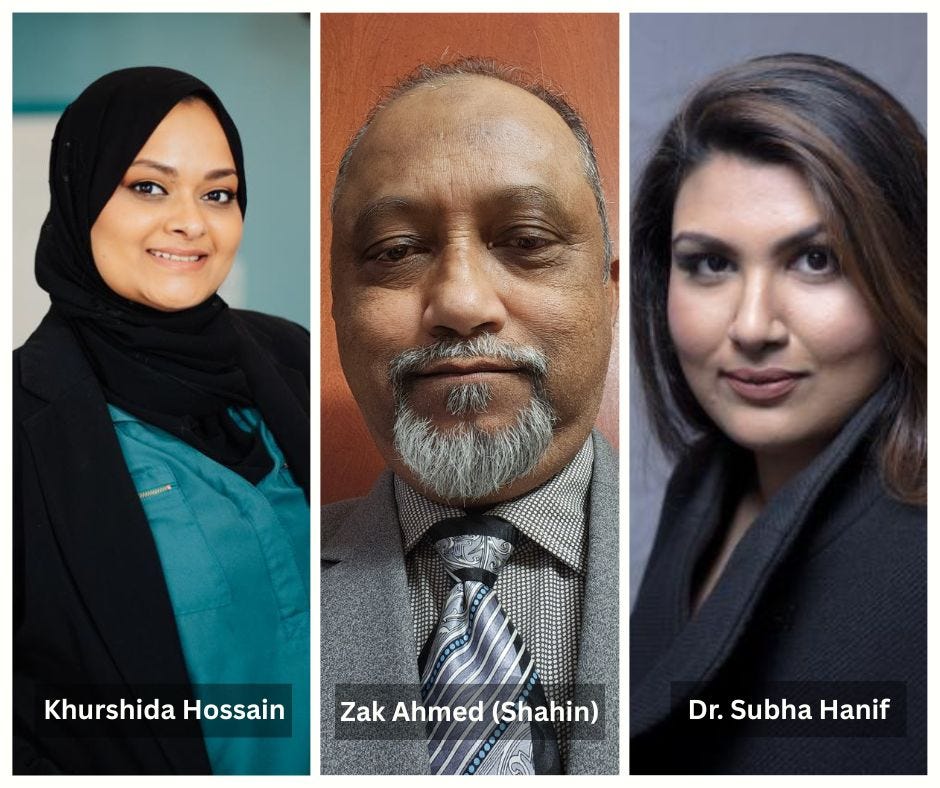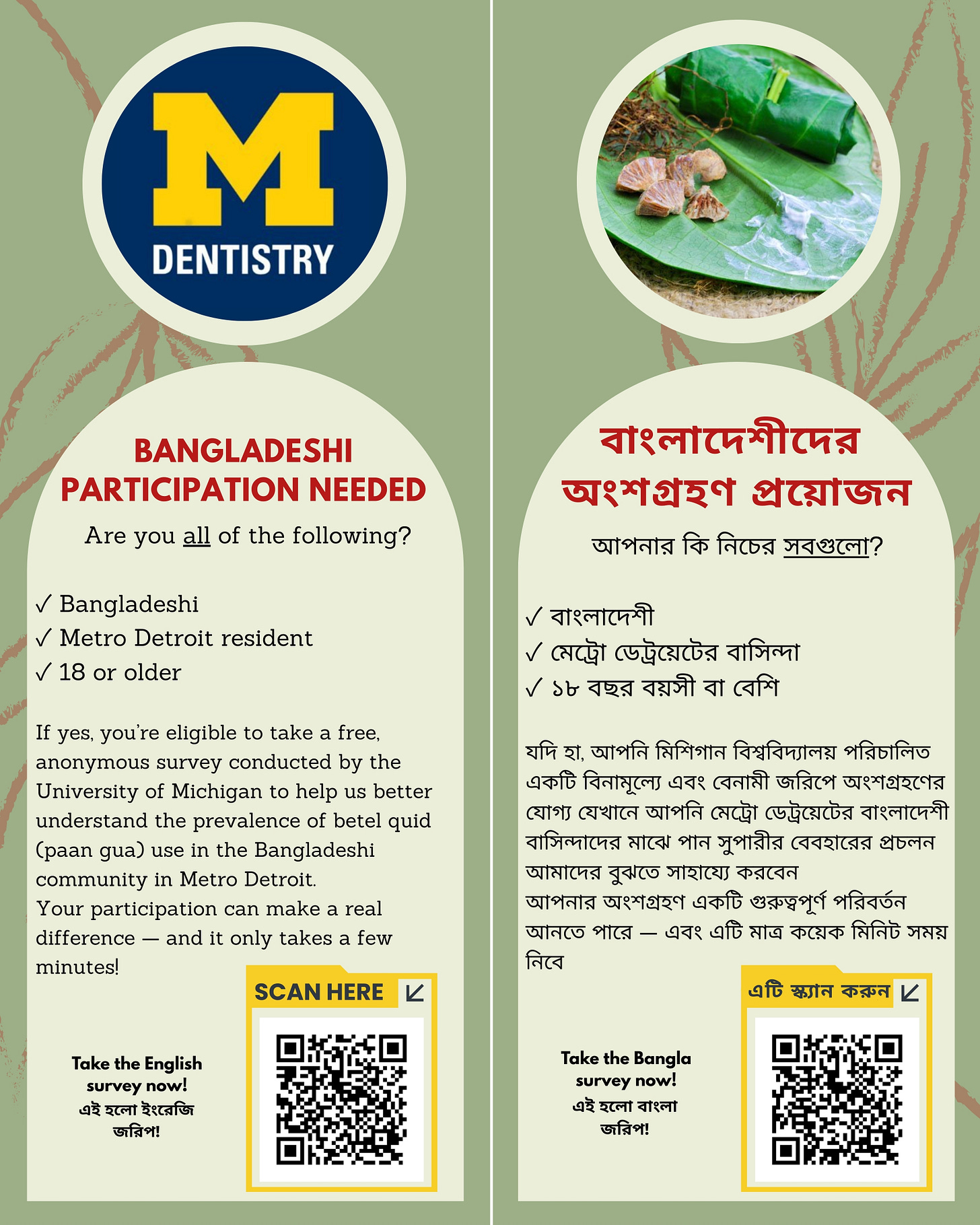Michigan is home to the third largest population of Bangladeshis in the U.S., with a significant number living in the Metro Detroit area.
Bangladeshi immigrants struggle with several challenges when trying to access health care. Among them are language, cultural competency, and adequate insurance.
As part of a new four-part series called “Shustho: Mind, Body, and Spirit,” WDET’s Nargis Rahman reports on how Bangladeshi women in Southeast Michigan are overcoming cultural barriers.
Check out the series at: wdet.org/shustho.
In our first iteration, learn more about how language access impacts Bangladeshi women.
Shustho: How language access affects health care for Bangladeshi women in Michigan
Khurshida Hossain, executive director of the Detroit Friendship House, says women are the lifeline to their families.
“It’s the mothers that come to pick up food, and we need to understand that women, even though if they don’t have access to education or transportation, they’re the ones putting the meals together, they are the ones that have more autonomy over the nutrition and the well-being of their children, and that’s important to us,” she shared.
Zak Ahmed is an interpreter for the U.S. Department of Justice and several Michigan hospitals. He says people can request Sylheti-speaking interpreters at healthcare facilities. Sylheti is spoken by 11 million people in the world.
“They do feel much better, actually, when they speak their own dialect. They can feel better when they see someone that they can understand their needs,” he said.
Dr. Subha Hanif, a cancer rehabilitation fellow at the University of Michigan, started her organization Bangladeshi Americans for Social Empowerment (BASE) in 2012 to create health education workshops for Bangladeshi women.
“I had to do a lot of sitting down with, you know, the uncles in our community and making them understand that if you send your wife here, she’s going to be more empowered to learn about her health… She’s going to inadvertently help your family, your children, and your health, and she’s going to be more empowered to take care of herself better as well.”
Do you or someone you know use paan supari? Here’s your chance to share this experience for a University of Michigan research study.
Betel quid (paan supari) use is a longstanding practice with deep cultural roots — but also poses significant oral health risks that are often overlooked in immigrant communities. “Betel Quid Use and the Health of Your Teeth and Gums: A Survey Among Bangladeshi Users in Metro Detroit” is a University of Michigan research study focused on understanding the prevalence, cultural and health perceptions, and oral health impacts of betel quid use among Bangladeshi adults living in the Greater Metro Detroit area.
The findings could provide critical insights that can help inform culturally tailored oral health education and public health efforts. This anonymous survey takes just a few minutes to complete and is available in both English and Bangla. The goal is to receive at least 1,000 responses, and survey collection is ongoing through June 2025.
Bangladeshi-American Nazifa Chowdhury is a master’s student in Oral Health Sciences at the University of Michigan School of Dentistry. She is passionate about community-centered research, dental public health, and improving care for immigrant and underserved populations. As a Bangladeshi-American from Detroit-Hamtramck, Nazifa brings a unique perspective to science, and her research reflects her commitment to bridging the gap between culture and oral health in her community.
Other Headlines:
The Embassy of Bangladesh will hold consular services in Michigan April 12-13, 2025, at the Al Ihsan Islamic Center.
Lifestyle blogger Wahida Miah is hosting a Community Plant Fair. Bring your seeds and plants to sell and purchase. There will also be food and activities.
Oakland County is hosting a virtual job fair on April 15.
The nonprofit Rising Voices is hosting a virtual community briefing from 6 to 7:30 p.m. April 15, to educate people about the “Alien Land Law” bills, which the organization says “are rooted in anti-Chinese, anti-Asian, and anti-immigrant sentiments,” which are being branded as “national security” concerns.






